Eritrea, smartphone and trafficking
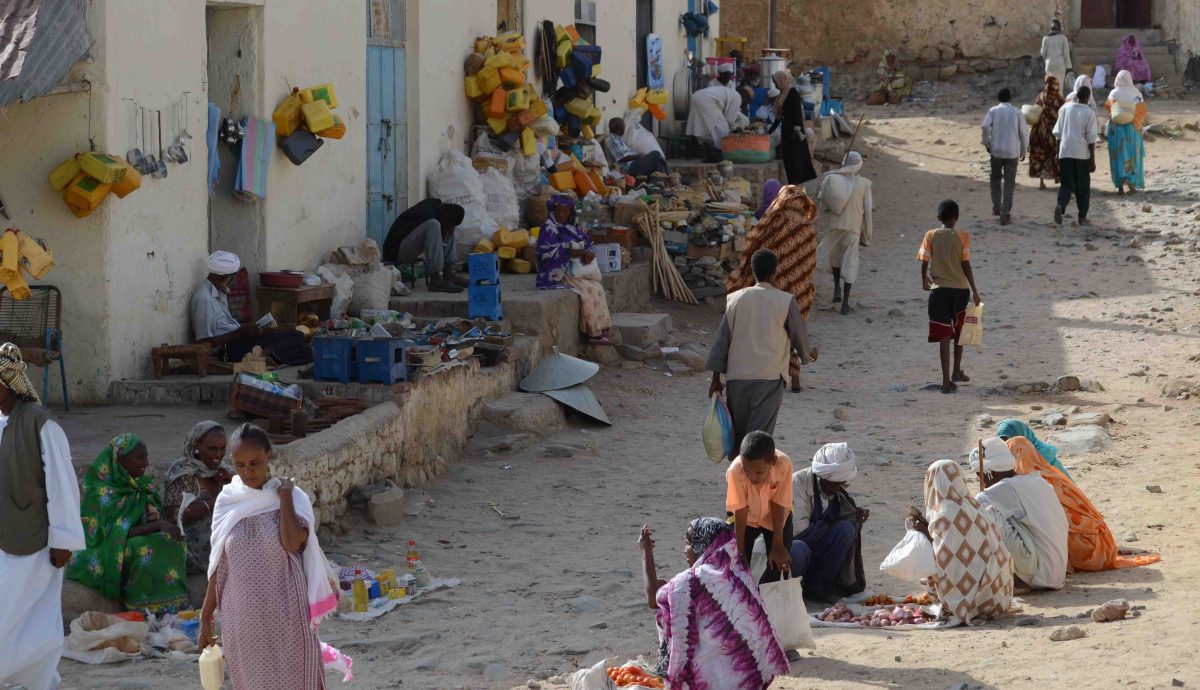
In the past few years, as we all know, the network has enveloped the world.
Data referring to the internet in 2015 indicate that 3 billion people, 41% of the world’s population actively uses the net – with 2.1 billion of these, i.e. 29% participating in a social media and 3.6 billion, that is 51% owning a cellphone.
And in Africa the cellphone has become a sign of new consumerism, resolving practical issues. In Senegal, for instance, fishermen use cellphones to know in real time where it is convenient to download the catch, whereas in Kenya the Safaricom M-Pesa service allows immediate money transfers.
So even in countries you flee from, you do it with a cellphone at hand.
It is sufficient, after all, to go around the districts of Italian towns where – for the least time possible “illegal” immigrants stay, i.e. those, who do not wish to be identified in order to continue their journey toward other countries, to see that they all have a cellphone in their hands.
It is a fairly new situation requiring some considerations, first of all on the country from which these people flee, from which they leave without visas on their passport. In poor countries such as Eritrea, cellphones, which are very widespread, are used not only to call family and friends, to know how you can make ends meet abroad, but also to contact and to be contacted by traffickers who, with their organization, meet a specific “market demand”.
For Eritreans, the journey towards Europe or America starts in refugee camps of neighboring countries – namely Ethiopia and Sudan. In these countries, states the UNHCR (the UN High Commissioner for Refugees) the highest numbers of young Eritreans are concentrated, young people between 18 and 24 years old, not family groups.
The UNHCR says Eritreans started filling Ethiopian camps in “2002 after the end of the conflict between Eritrea and Ethiopia (1998-2000). “Recent arrivals”, writes the UNHCR “demonstrate the escape from a compulsory military recruitment campaign and from an often indefinite military service”.
I would add that these youth, perhaps without knowing it, are also escaping from sanctions imposed on their country in 2009-2011 and still enforced, without any evidence – the straw that broke the camel’s back, in a country already laden with problems: lack of employment, incomplete reconstruction, privatizations only just underway.
In actual fact, explains a Western embassy interviewed in Asmara in October 2014 by the Danish Immigration Service, (DIS) Eritreans do not remain long in Ethiopian refugee camps, because they cannot work there, only very few of them go to school and a negligible number can go on to study at university. Therefore, the camp represents an initial transit point to then end up in the tangles of the Ethiopian black market labour, or more often to pay for the journey to Europe.
A journey which has Libya as a second stop-over. In the escape of Eritrean youths push- and pull factors are mixed together.
Surely, national service is not popular among young people, who are not willing to work for a state that pays little and extends the times for the desired wealth, and acts as a push factor, but the presence abroad of a mass exodus of people, who has fled the country since the end of the Second World War, finding work in Europe or in America, is a pull factor.It is often relatives, who give in to the young people’s requests helping them pay, in the hope of giving them a better future.
The DIS writes in a report on the situation in Eritrea that: “a doctor earns 1.700 Nafka, a minister 4.000, a refugee receives between 500 and 600 euro by aids, which converted in Nafka are worth depending on the exchange rate, between 5.000 and 8.000 Nafka.
Therefore Eritrea cannot bear comparison with the West.
In Eritrea girls complete their studies at 17 in Sawa, which is not the name of a prison or a barrack, but of a [residential] complex where, after a six-month military training the paths of the students divide. Those who achieved excellent school results will continue their studies, otherwise, after a professional training course, they will start working. In both cases their work – whether intellectual or manual – is paid by the state, and therefore little.
National service is not the enlisting of youths in a permanent army, but a civil service, which commenced after independence with the aim of rebuilding everything that had been destroyed in the thirty years of war (1961-1991), such as roads, schools, hospital, houses.
Those who fought have accepted the price for self-reliance. They did not want a rich West to arrive with programs and projects to be just implemented by the Country. Facts have proved that the reasons behind this political choice were right, because this ‘help given from above’ is not only useless, but as we have seen, makes those who give it richer than those who receive it. Eritrea wanted to avoid the habit of receiving help, an addiction which stifles any initiative.
In this way, though, it has started a longer, more difficult and uphill path.
There is no corruption in the Country, but the current political class is experiencing a generational break. The generation which flees is the one which, for the first time in history, has inherited a flag, has studied for longer, has been vaccinated, is healthier and even taller – a generation which sees the difference between the difficulties in their own country and the Western wealth.
These youth are tired of thinking that Ethiopia is their problem, they are less nationalists than their fathers, they watch the CNN, the BBC, log on the internet, talk with people living elsewhere, and with those who come back for their Summer holidays bringing with them the image of another possible world, not so far away.
So far this is the story of a young Country, which has just become independent, whose peace was interrupted too soon, with a powerful hostile neighbor supported by the West. Two new elements must be added to the picture – namely, the trafficking of human beings and media war.
Eritreans who leave their country due to poverty, apart from being a concern for Eritrea, have become the symbol of political persecution.
Their declarations, recorded and magnified by media world-wide, give horrific details, depict a dark scenario, whereas insiders find out, that they declare to be persecuted for political or religious reasons in order to receive shelter and work. The risks of fleeing are therefore limited to the journey, once they arrive they will fill out a form and they will have political asylum, in accordance with what Europe has established, at least so far.
This process has unleashed an otherwise inexplicable race, involving Somali, Sudanese, Ethiopian and even Kenyan people who declare themselves to be Eritrean, as cultural mediators who help with the procedures tell us.
A pull factor for escaping, no matter if it will cost many human lives at sea, because in the case of a shipwreck, the media will blame Eritrea for killing its sons. In April last year, in Geneva, the spokesperson of the UN High Commissioner for Refugees Mr. Adrian Edwards, referring to the shipwreck that caused 850 casualties, said that 350 of these were Eritreans. But this was not true, as the three Eritrean survivors interviewed in the centre in Mineo a few days later, have reportedly said they were the only Eritreans on board.
Why this game of massacre?
Not that one should be happy if the man or woman who died was from Somalia rather than Eritrea, but why is Eritrea – a small country with its six million people – always on top of the sad list of migrants?
Back to the journeys. Who organizes them? Who puts men and women on pick-up trucks to cross the desert to reach Libya, who will embark them to make them reach Italy? Who will keep contact and accounts, names and payments? Many people, a rich business still to be uncovered.
The tragedy of Lampedusa, however, has revealed a few names, for instance that of Ermias Ghermay, an Ethiopian in charge of grouping migrants in Karthoum, taking them to Tripoli and hiding them, practically keeping them prisoners, until they are embarked. Ermias has carried out a fundamental role, he knew each person, who was given a code, and kept accounting records of the installments paid by relatives for the various stages of the journey. A family enterprise which has yielded high returns to him, who was dealing with the traffic to Sicily, and to his brother Asghedom, the undisputed boss of the Libyan traffic. A journey gone wrong has shed some light on the network, many others were successfully completed, though, and they were all carried out in the same way.
But how do traffickers and migrants keep in contact?
By smartphone.
According to an investigative report published on the New York Times on 25th August, new migrants need food and shelter for their journey, but, above all, a cellphone. In this way, thanks to maps and gps co-ordinates, migrants can cut the cost of accompaniment supplied by traffickers.
So far, though, criminal bands have used satellite phones for their contacts among themselves and their “clients”, or internet communications via Skype or Viber, which enabled the antimafia investigative agency of the Public Prosecutor’s Office in Palermo to intercept conversations and start investigations Glauco and Glauco 1, about which little has been said, yet.
The crucial point of the migrants’ journey is the passage by sea from Libya toward European coasts, first among all Italian coasts. After the tragedy of Lampedusa, on the wave of emotions and under the international gaze, Italy launched operation Mare Nostrum which, guaranteeing rescue at sea, saved thousands of migrants, with the perverse effect, though, of encouraging new departures. An expensive operation, which has been replaced among controversies by the cheaper operation Triton, paid for by Europe, which is limited to the patrolling of coasts, leaving rescue on the high seas to the competent port captaincies.
But how do migrants call for help? With a satellite phone given to them on the “mother” ship, which takes them until the limits of Libyan waters, to then transfer them on board disposable “tramps” driven by smugglers, sometimes by migrants, who, being somewhat familiar with the sea, get a discount on the crossing.
The geopolitical magazine Limes, in an issue dedicated to immigration, writes that it appears “there are still European war ships lined up in front of Libyan territorial waters, which are allegedly being contacted by those who are on board the ships to be rescued. A circumstance, which would be actually transforming prestigious allied Navies in other subcontractors of criminal organizations who manage migration fluxes”.
But they are not the only ones who receive rescue calls turning into “subcontractors”.
Eritreans have been calling a priest, don Mussie Zerai, for some years now, who has been in charge of the Habesha Agency since 2006 and who is clear about the reasons why young people flee Eritrea – they do not flee, he says, from poverty, but from the atheism of a regime “the most blood-thirsty and totalitarian of modern day Africa” a new “North Korea”.
Therefore, Mussie Zerai has decided to replace by himself the humanitarian channels he wanted Europe to create, thinking that, with a satellite phone, you can save the lives of Eritreans (or Ethiopians) – people who have his number, who call him from the boat in the final and dangerous stage of the crossing, so that he can send the co-ordinates for the rescue.
And for this reason he was nominated for the Peace Nobel Prize.
Surely, people are not born as “illegal immigrants” and should not become so, however, if this occurs, to save themselves they are ready to pay the infinite network of men, who maneuver the traffic.
Before they even set foot in Italy Eritrean youth know two things – first, that to by-pass the Dublin Regulation they musn’t be identified, i.e. they must not give their fingerprints and enter reception centres, and, secondly, that in Italy there is neither work or welfare, and that therefore they should apply for “political” asylum elsewhere.
Large Italian cities in recent years have been filled by “invisibles”, that anyone can see, above all traffickers. Someone will withdraw money on their behalf, at the many recently opened money transfer points, so that they can continue their journeys, by showing their own document and settling for a small “gift”. Others, instead, will demand to be paid to accompany them to Switzerland, or rather, to Pioltello, near Milan, where there is a beautiful “Switzerland” sign – obviously, just a road sign. And the business continues.
Last April Mr. Fabbrice Leggeri, director of Frontex, the EU Border Agency, declared in an interview to Le Figaro that “migrants taking the Libyan route are now coming from Africa, not from Syria or Irak, they leave for economic reasons and can be sent back home”.
The question is, though: could migrations from countries such as Eritrea – where there is no war but poverty – be stopped before repatriations, before identifications in hotspots, through investments that create employment in these countries?
The European Union has recently decided to allocate approximately 300 million euros to Eritrea, money destined to its development, for the support of healthcare and agriculture.
Money that could create jobs, could allow the construction of more dams and micro reservoirs to store water, just as precious for the Country as its youth, who represent its future.
Money that could stop many deaths at sea and could destroy the trafficking network, satellite phones included. Money that could support the right to live in one’s own country, at least for the 99.8 per cent of young Eritreans who, as the DIS wrote, quoting a Western Embassy, flee from poverty and not from religious or political persecution.
Marilena Dolce
@EritreaLive
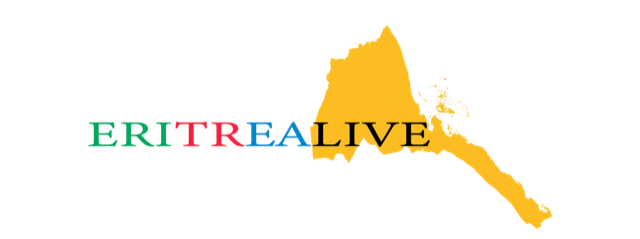
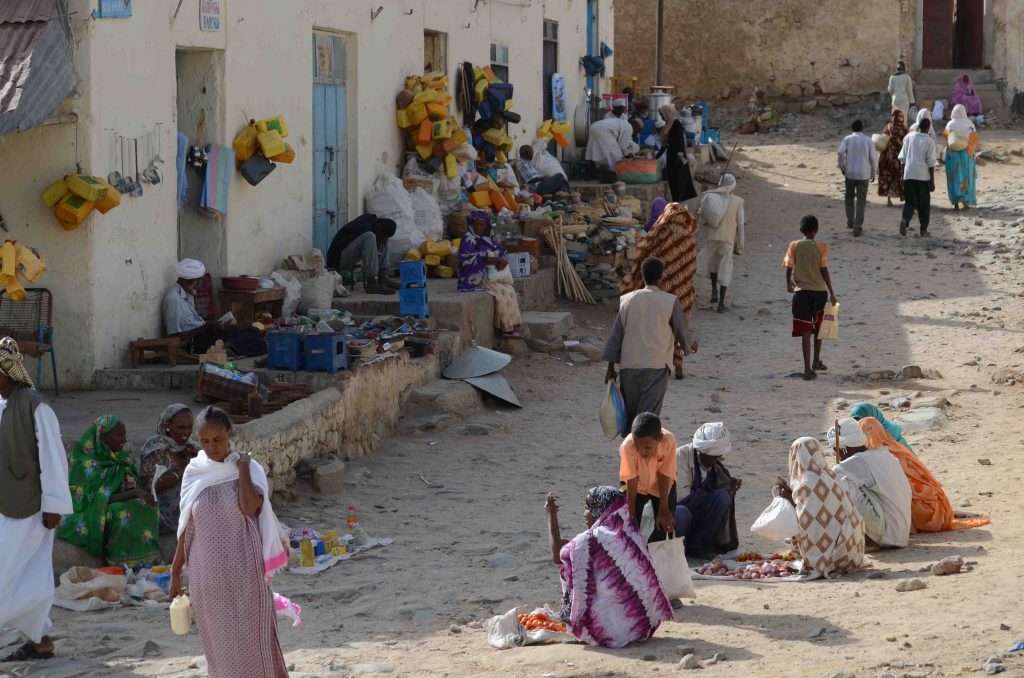
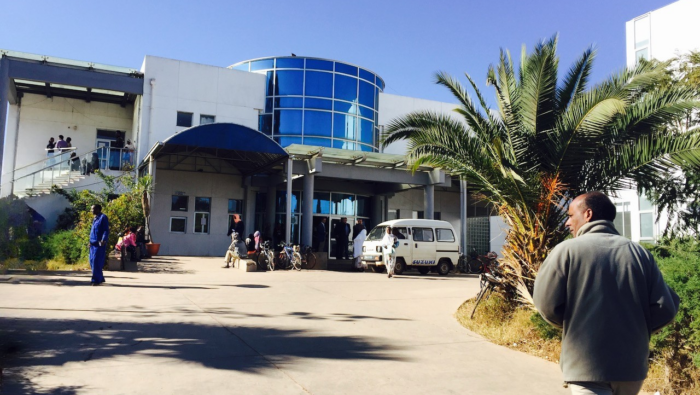
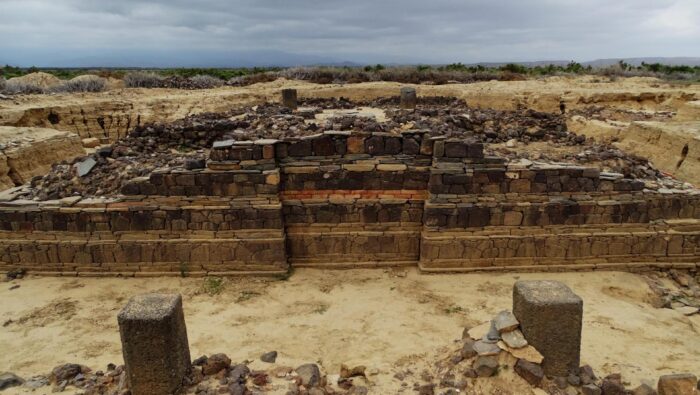
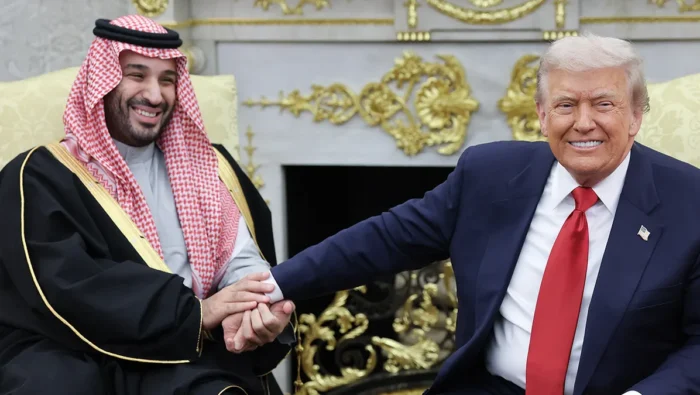
Lascia un commento